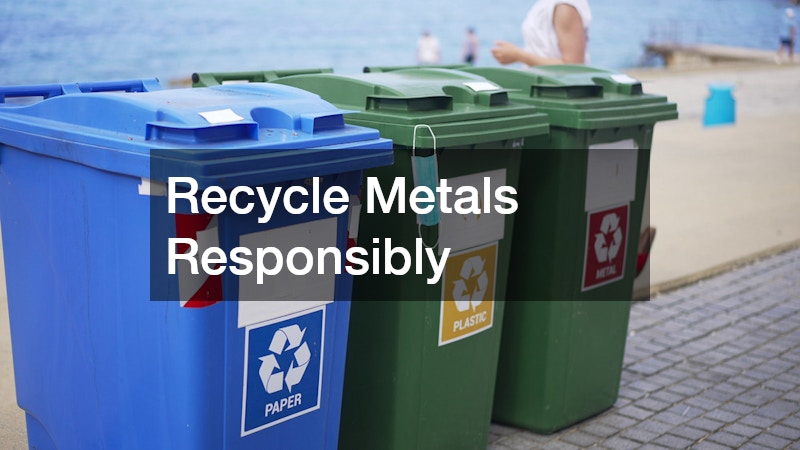Creating a home that is environmentally friendly doesn’t have to be complicated or expensive. Small, practical changes can reduce energy consumption, minimize waste, and improve overall sustainability. From energy efficiency and responsible recycling to smart gardening and appliance care, every action contributes to a greener lifestyle.
In this article, we’ll explore ten strategies that homeowners can implement to make their homes more eco-friendly. Each strategy focuses on practical tips, cost-effective solutions, and habits that support both the environment and long-term savings.
Improve Energy Efficiency

Maintaining energy efficiency is one of the simplest and most effective ways to reduce your home’s environmental footprint. Installing thermal insulation covers on windows, doors, and heating systems helps retain warmth during winter and keeps interiors cooler during summer months. These covers reduce energy consumption by minimizing heat loss, which not only lowers electricity bills but also decreases greenhouse gas emissions associated with heating and cooling.
Beyond insulation, homeowners can adopt a variety of complementary practices. Sealing drafts around windows, doors, and vents prevents unwanted air exchange, while energy-efficient lighting, such as LED bulbs, reduces electricity use without compromising brightness. Adjusting thermostat settings by even a few degrees, using programmable thermostats, and taking advantage of natural sunlight can further improve efficiency.
Regular maintenance of heating and cooling systems, like cleaning filters and servicing HVAC units, ensures that equipment operates at peak performance. By combining these strategies, homeowners can conserve energy, lower utility costs, and create a more comfortable, sustainable living environment, contributing to both financial savings and environmental protection.
Repurpose Household Items
Household waste can often find a second life, helping reduce landfill contributions and promoting a more sustainable lifestyle. Used tires, for example, are a versatile material that can be repurposed instead of being discarded. They can be transformed into garden planters, raised beds, swings, outdoor furniture, or even creative playground equipment. By giving tires a second life, homeowners reduce the need for new materials and keep potentially harmful waste out of the environment.
Creative reuse also encourages sustainability habits throughout the household. Organizing DIY projects to convert tires into garden edging, compost bins, or decorative outdoor elements can be both fun and educational for family members. Painting or decorating tires adds a personalized touch while enhancing curb appeal.
Repurposing tires not only prevents them from contributing to pollution but also inspires resourcefulness and creativity. By thinking outside the box, homeowners can turn discarded items like used tires into functional, eco-friendly solutions that benefit both their home and the planet.
Recycle Metals Responsibly

Metals such as steel, copper, and aluminum are among the most sustainable materials available, as they can be recycled indefinitely without losing strength or quality. Partnering with a trusted metal recycling company ensures that scrap materials from home renovations, old appliances, or DIY projects are collected, sorted, and processed in an environmentally responsible manner. Recycling metals significantly reduces the need for new mining operations, conserving energy and protecting natural ecosystems.
Homeowners can take an active role by sorting metal waste before disposal. Items like sheet metal, pipes, window frames, and beverage cans can all be separated for recycling. Many recycling centers even offer compensation for certain metals, adding a small financial incentive. By supporting responsible metal recycling, households contribute to a circular economy—where valuable materials are continually reused—helping to reduce waste, save energy, and lower overall environmental impact.
Reuse Specialty Materials
Some metals, like brass, offer exceptional opportunities for sustainable reuse due to their durability and high market value. Instead of discarding old fixtures or hardware, homeowners can partner with a trusted brass recycling service to ensure these materials are collected and processed responsibly. Brass is commonly found in household plumbing fixtures, doorknobs, light fittings, and musical instruments—items that can often be overlooked when decluttering or renovating.
Recycling brass not only prevents valuable materials from ending up in landfills but also reduces the demand for energy-intensive metal production. Manufacturing new brass requires significant amounts of copper and zinc, both of which deplete natural resources. By recycling instead, homeowners help conserve raw materials and lower greenhouse gas emissions associated with metal extraction.
Even small steps—like removing old brass hardware during upgrades or saving scrap metal from repairs—can make a meaningful environmental difference. Partnering with a reputable recycling service ensures these items are repurposed efficiently and contribute to a more sustainable home improvement cycle, where every material finds a productive second life rather than becoming waste.
Optimize Your Home’s Copper Use
Copper is one of the most sustainable metals available, as it can be recycled repeatedly without losing quality or performance. Engaging in copper recycling allows homeowners to reduce waste, conserve natural resources, and help limit the environmental damage caused by mining operations. Items such as old plumbing pipes, electrical wiring, roofing materials, and even outdated electronics often contain recyclable copper that can be recovered and reused.
Recycling copper also supports a more circular economy by lowering the demand for new raw materials and cutting down on the energy required for production. Homeowners can partner with local recycling programs or scrap metal facilities that accept copper for responsible processing.
Beyond recycling, incorporating copper into sustainable home projects can also be beneficial. Copper’s antimicrobial properties make it ideal for plumbing systems, and its energy efficiency enhances modern electrical systems. Responsible use and recycling of copper not only promote sustainability but can also yield financial returns, as scrap copper typically retains significant resale value. Through thoughtful material management, homeowners can make a meaningful contribution to environmental conservation while improving their property’s long-term efficiency.
Extend Appliance Life

Replacing household appliances too often not only strains your budget but also adds to environmental waste. Many devices, from refrigerators and dishwashers to air conditioners, can function efficiently for years with proper care. Investing in appliance repair instead of purchasing new products helps reduce landfill waste and conserves the energy and raw materials required for manufacturing replacements. Repairing existing appliances is a practical way to practice sustainability without compromising comfort or convenience.
Regular maintenance plays a major role in prolonging the lifespan of your appliances. Cleaning filters, checking door seals, inspecting moving parts, and addressing small issues early can significantly improve energy efficiency and prevent major breakdowns. Choosing certified technicians ensures repairs are handled correctly and safely, maintaining optimal performance.
In addition to repairs, homeowners can make smart energy adjustments—like unplugging unused devices and using eco-friendly settings—to further lower electricity consumption. Extending appliance life not only protects the environment but also saves money over time. By prioritizing repair and maintenance over replacement, households can create a more sustainable and cost-effective living environment.
Manage Household Waste
Managing household waste responsibly is one of the most effective ways to maintain a clean, sustainable home. Over time, clutter such as old furniture, broken appliances, and renovation debris can accumulate, taking up valuable space and contributing to environmental strain. Partnering with a professional junk removal service ensures these items are collected, sorted, and disposed of properly. Many of these services prioritize recycling, donation, and eco-friendly waste management practices to minimize landfill impact.
Before calling for removal, homeowners can take a few sustainable steps—repairing damaged items, repurposing usable materials, or donating unwanted goods to local charities. This approach not only reduces waste but also supports community organizations and promotes mindful consumption.
Professional junk removal companies also handle potentially hazardous materials safely, ensuring compliance with environmental regulations. By decluttering responsibly, homeowners can create more functional living spaces while contributing to broader sustainability goals. Regular waste management and organized disposal routines encourage cleaner, healthier environments and inspire long-term eco-conscious habits within the household.
Dispose of Cooking Oil Safely
Used cooking oil, if discarded improperly, can lead to clogged drains, foul odors, and environmental contamination of waterways. Partnering with a professional cooking oil disposal service offers a safe, environmentally responsible solution. These services collect and process used oil, converting it into biodiesel, industrial lubricants, or other repurposed products. This approach not only prevents pollution but also contributes to a circular economy by giving waste materials a second life.
Homeowners can make the process easier by storing used cooking oil in clean, sealed containers until collection. Avoid pouring oil down sinks, toilets, or outdoor drains, as even small amounts can create major plumbing issues and harm local ecosystems. Regularly scheduling disposal or drop-off ensures that oil does not accumulate and reduces household risk.
In addition to environmental benefits, responsible cooking oil disposal encourages mindful habits around consumption and waste management. Teaching family members to handle used oil safely reinforces eco-friendly routines. Simple actions, like using a cooking oil disposal service, collectively reduce pollution, protect water quality, and support sustainable living, making your home safer and more environmentally conscious.
Create a Sustainable Garden
Incorporating a greenhouse into your backyard is an excellent way to cultivate fresh fruits, vegetables, and herbs year-round while reducing your environmental footprint. Greenhouses extend growing seasons, allowing you to produce food even during colder months, which decreases reliance on store-bought produce that often comes with high transportation emissions and packaging waste. By growing your own crops, you also gain control over organic gardening practices, avoiding synthetic fertilizers and pesticides.
Even small greenhouses can make a meaningful difference. They enable homeowners to manage temperature, humidity, and pest exposure, producing healthier, nutrient-rich crops with minimal chemical intervention. Integrating composting systems for organic waste and collecting rainwater for irrigation further enhances the sustainability of your garden, reducing reliance on municipal resources.
A greenhouse encourages thoughtful gardening habits, promotes self-sufficiency, and provides a year-round source of fresh produce. It also serves as an educational tool for families, teaching children about plant growth, ecology, and responsible food sourcing. By combining a greenhouse with other sustainable practices, homeowners can create an eco-friendly, productive outdoor space that supports health, reduces waste, and strengthens connection to nature.
nhances sustainability and creates a productive, eco-friendly outdoor space.
Care for Trees and Landscaping
Trees are essential to a healthy, sustainable home environment. They improve air quality by absorbing carbon dioxide and releasing oxygen, provide shade that reduces energy costs, and enhance the aesthetic value of your property. Regular tree care services ensure that trees remain strong, disease-free, and properly pruned, preventing safety hazards and minimizing the risk of costly removal or replacement.
Proper tree and landscape maintenance also contributes to environmental sustainability. Healthy root systems help manage water runoff, reduce soil erosion, and support biodiversity by providing habitats for birds, insects, and other wildlife. Incorporating native species into your landscape promotes resilience, requiring less water and fewer chemical interventions than non-native plants. Sustainable irrigation methods, such as drip systems or rainwater harvesting, further reduce water consumption while maintaining healthy vegetation.
Professional tree care services can assess the overall health of your trees, address pest or disease issues early, and provide expert guidance on pruning and planting. By investing in these services, homeowners not only enhance the beauty and safety of their outdoor spaces but also contribute to a greener, healthier environment. Thoughtful tree and landscape care supports long-term sustainability and creates a welcoming, eco-conscious home setting.
Conclusion
Making your home more eco-friendly is a combination of small, practical actions and strategic investments. From enhancing energy efficiency with thermal insulation covers to responsibly recycling metals like brass, copper, and general scrap, every step contributes to sustainability. Proper appliance repair and waste management reduce landfill contributions, while services like cooking oil disposal prevent environmental contamination.
Creating a greenhouse and practicing proper tree care promote healthier, more productive outdoor spaces that support long-term environmental benefits. Even repurposing items like used tires encourages a circular, resource-conscious lifestyle.
By implementing these strategies, homeowners can reduce their ecological footprint, save money, and foster a sustainable living environment. Small daily actions and mindful decision-making create lasting positive impacts on both your home and the planet, proving that eco-friendly living is achievable for everyone.
